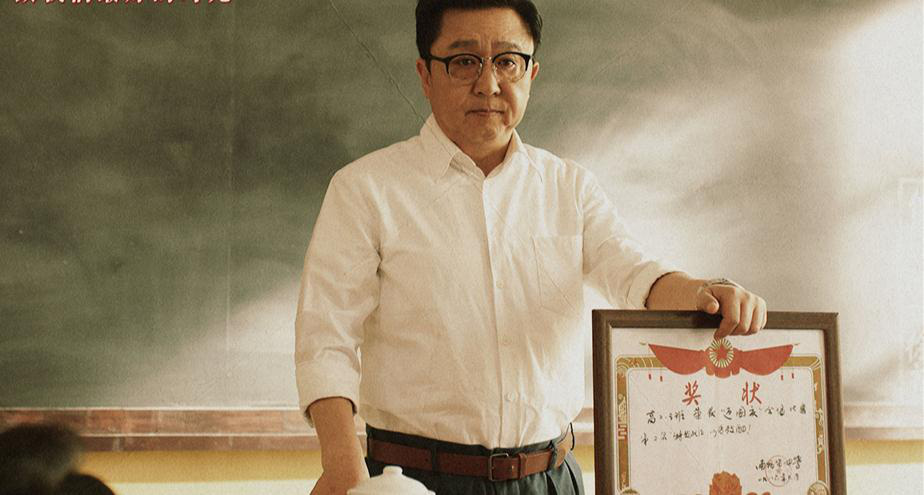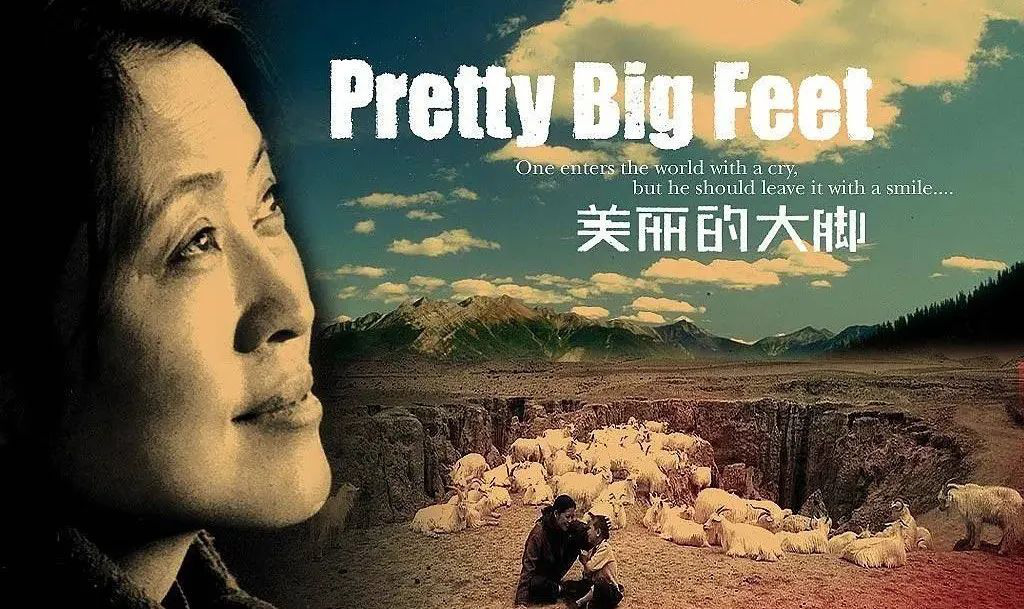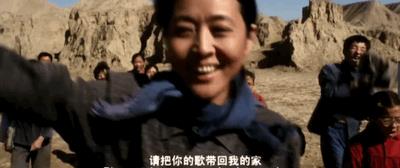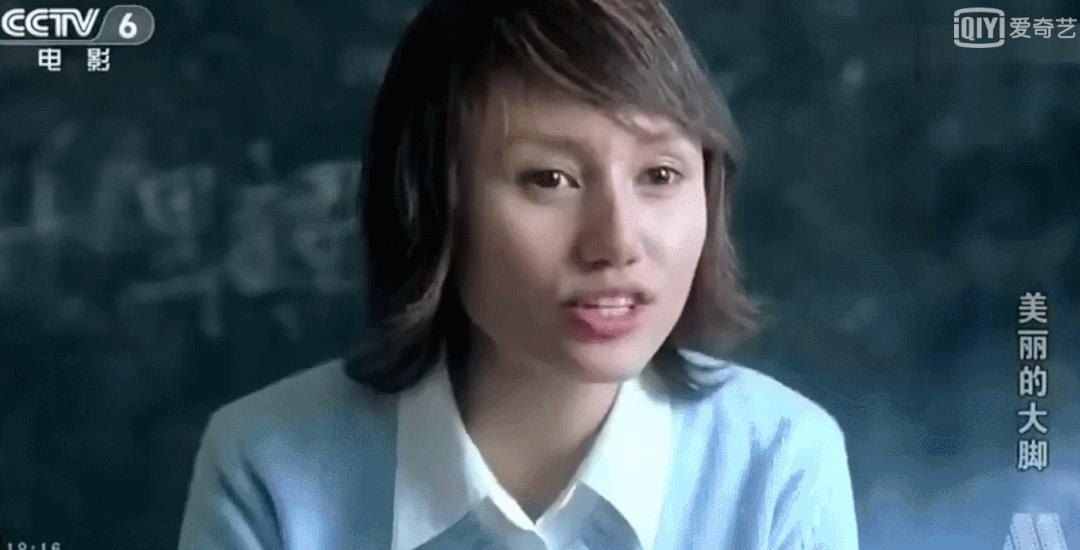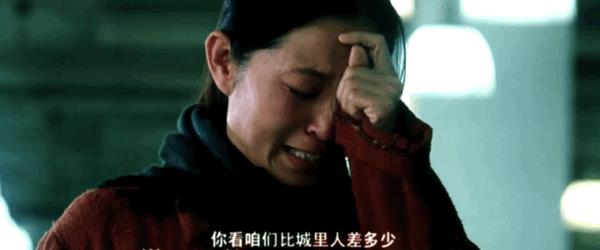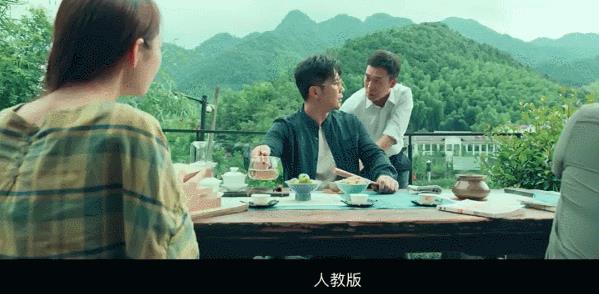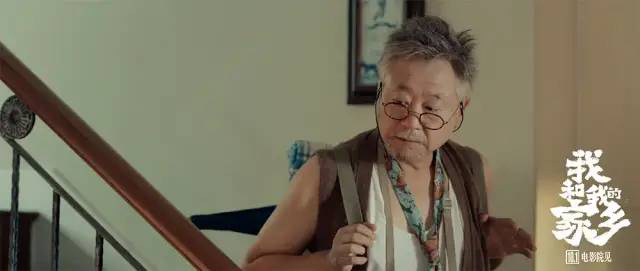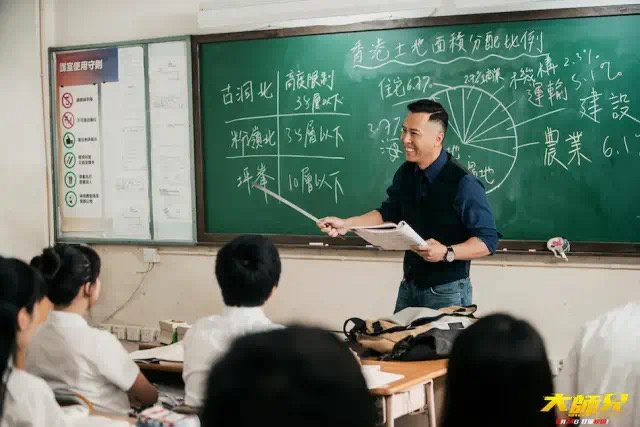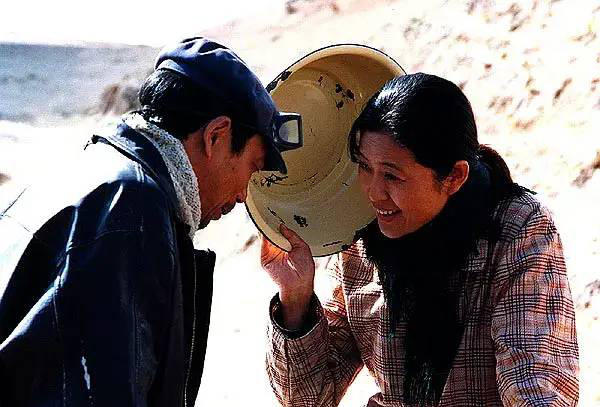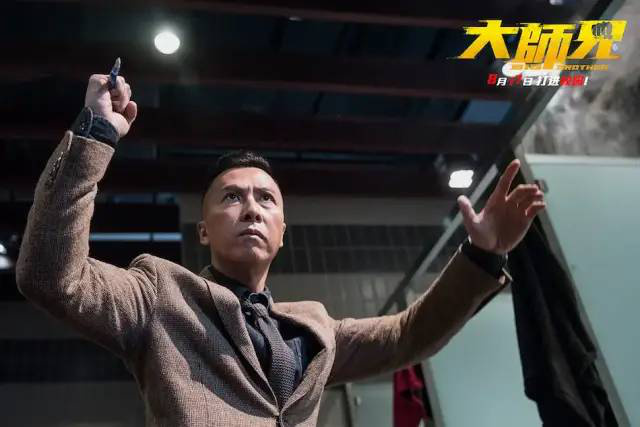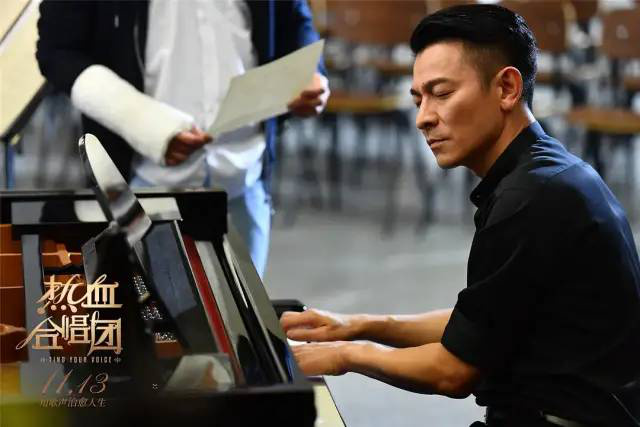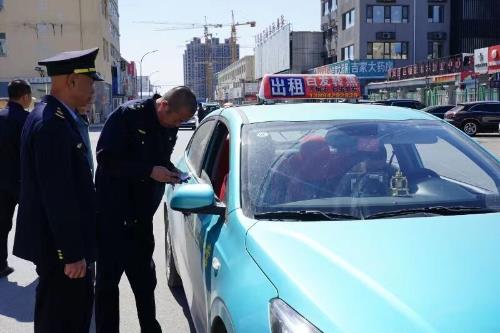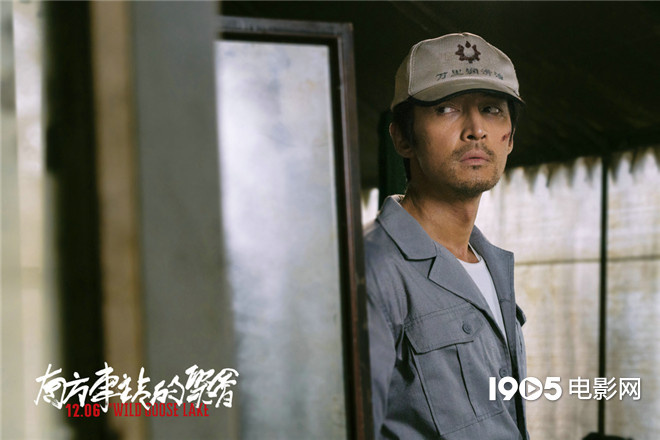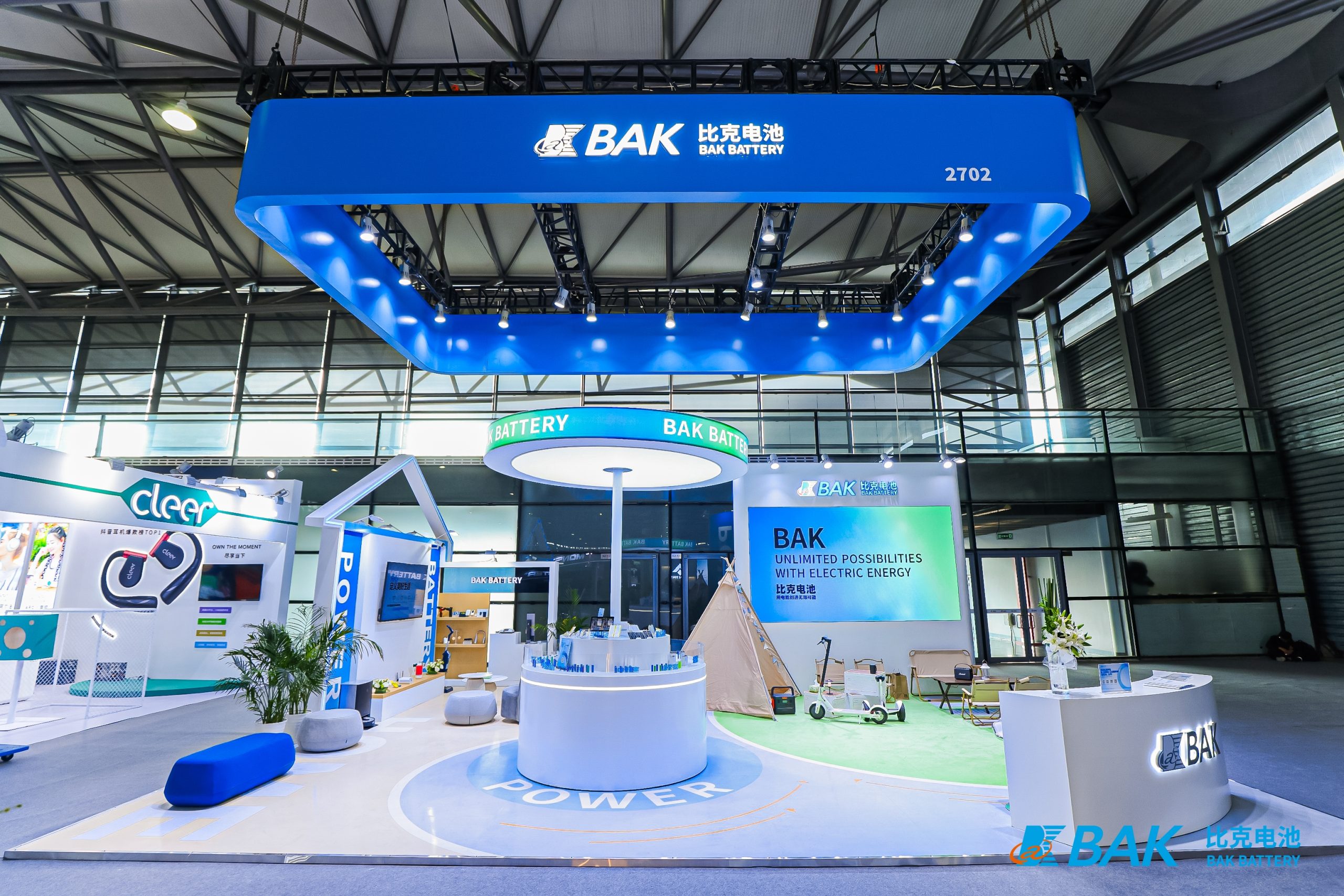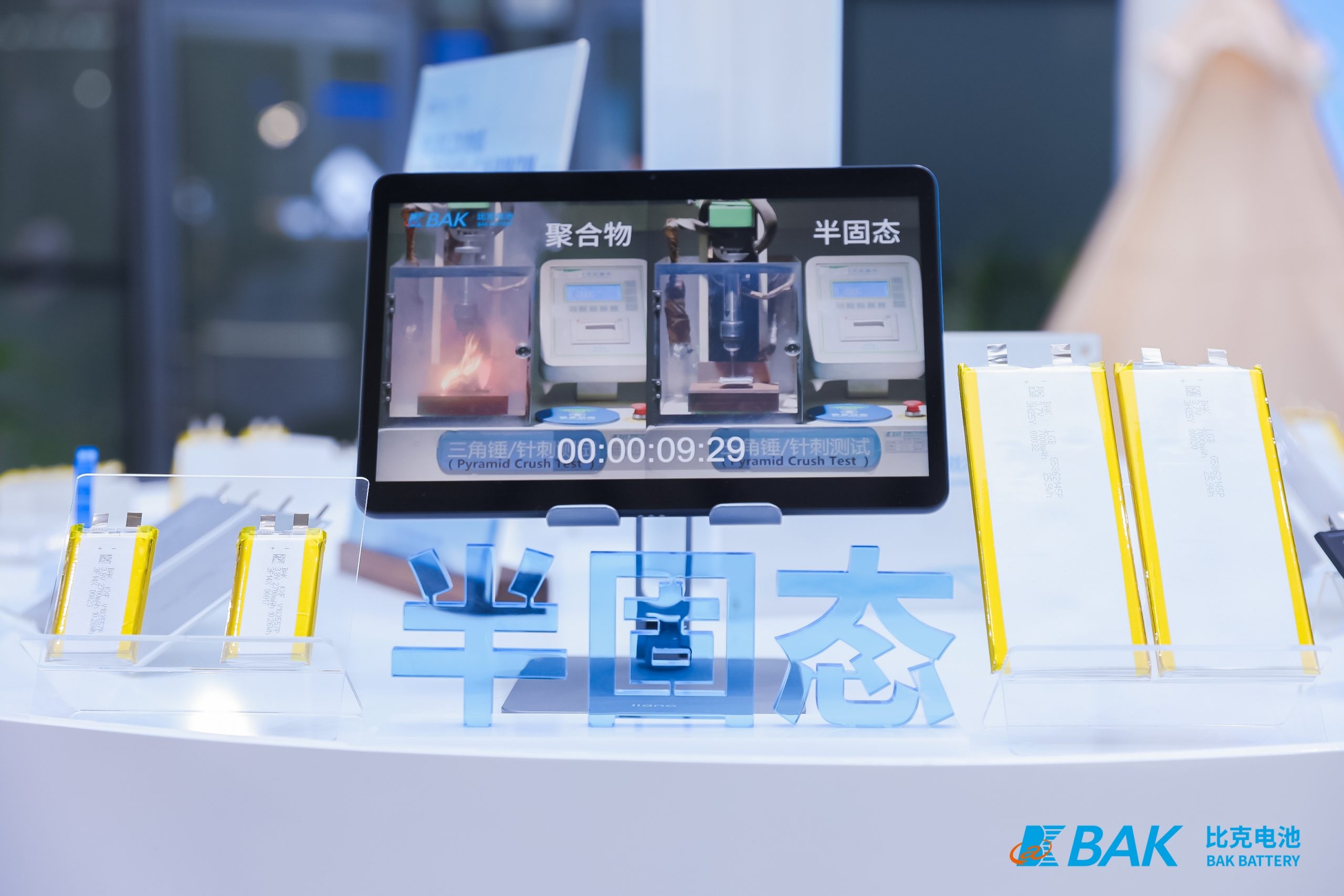On January 5, "China’s new generation of pure electric flagship" Galaxy E8 was officially launched and delivered simultaneously. The new car launched a total of 5 versions, priced from 175,800 yuan to 228,800 yuan. At the same time, Geely Galaxy E8 also launched a series of limited-time car purchase rights, covering the whole dimension of car booking, car purchase and car use. Yu Minhong, chairperson and CEO of Oriental Selection, became the first owner of Geely Galaxy E8.
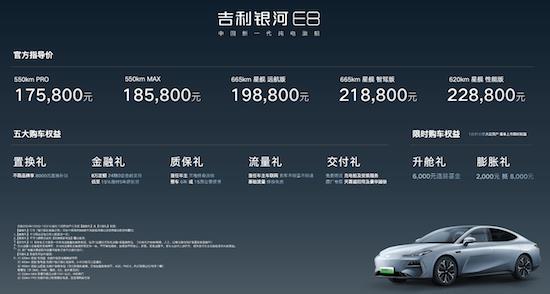
At the same time, Geely also showcased its innovative technologies and products in intelligent driving, Xingrui model, complementary ecology, and the future of Geely Galaxy. In the next two years, Geely Galaxy will launch a variety of new products, leading China’s new energy into a high-value era, and the "Galaxy Era" of China’s new energy vehicles has officially arrived.

China’s new generation of pure electric flagship, Galaxy E8, has revolutionized the mainstream pure electric value
Before the Galaxy E8, there was still no high-value mainstream pure electric in the mainstream market with the widest range of users. Similarly, the B-class sedan market is still firmly occupied by foreign fuel vehicles, and consumers cannot find pure electric products that can be upgraded and replaced. As a new generation of pure electric flagship in China, the Galaxy E8 brings Oriental aesthetics, safety heritage, supercar performance, and borderless intelligence to the mainstream market. It not only wants to subvert the current mainstream pure electric products, but also become a super replacement for luxury fuel vehicles, bringing real high-value pure electric flagship to users in the mainstream market.
Original ripple aesthetics, subverting mainstream pure electricity without "advanced sense design"
The Galaxy E8 adopts the "ripple aesthetic" design and pioneers the "ripple of light" rhythmic grille to create the world’s first mass-produced integrated luminous front face, subverting the cookie-cutter "high imitation face" of other electric vehicles in one fell swoop. Original designs such as the majestic "tiger front face" with its own king, the tiger body that leaps up at any time, and the tail lights of the "rising sun" all show the charm of China. 6 body colors, all inspired by the "Ten Scenes of West Lake".

In terms of interior design, suspended audio, fragrance, and ambient lights are integrated on the dashboard, just like the three pools of Yinyue in the "Ten Views of West Lake". In particular, the Galaxy E8 has undergone 25 low wind resistance designs, more than 2,000 simulation tests, and 150 hours of wind tunnel tests, achieving the lowest wind resistance coefficient of 0.199 in the world and the highest aerodynamic design.
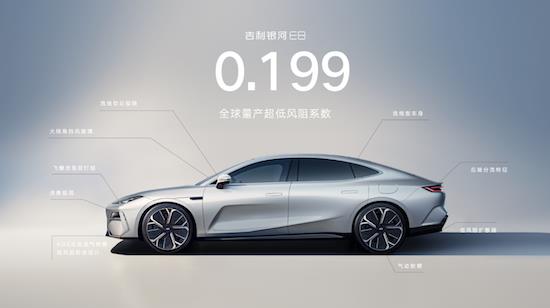
Only original design can create a model of the times. Starting from the Galaxy E8, the aesthetics of new energy vehicles have entered the "Chinese design era".
SEA architecture fully empowers the mainstream pure electric no "high performance driving control"
The SEA pure electric architecture allows the Galaxy E8 to accurately achieve a golden axle-to-load ratio of 50:50, resulting in more balanced and stable motion performance. It is naturally a good foundation.
On this basis, the Galaxy E8 through Geely’s unique, the first digital virtual adjustment, adjustment iterations more than 10,000 times, yaw linearity to achieve 92.61%, far more than the industry average of 81%, in the most verified stable performance of the Elk test, Galaxy E8 achieved 82km/h good results, the world’s top three, beyond the Porsche 911 and Taycan.
At the same time, the SEA architecture’s excellent suspension steering design, with a maximum steering angle of 41.28 °, also allows the minimum turning radius of a 5-meter sedan to be 5.62 meters, which is comparable to a luxury car equipped with "rear wheel steering" technology.
The Galaxy E8 uses the black technology of "heartbeat fitting technology" to achieve a vertical frequency of nearly 1.25hz on the undulating road that matches the human heartbeat and breathing, so as to achieve "the same frequency of people and vehicles" and drive without motion sickness. At the same time, it also comes standard with a GCS comfort braking system, which can suppress 76.3% of the brake nod and body pitch, effectively eliminating the vertigo caused by pure electric vehicles when braking.
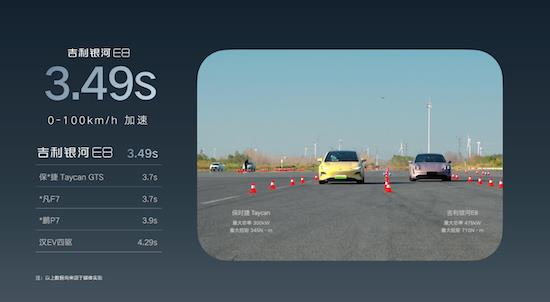
In order to meet the needs of different users, based on the excellent scalability of the SEA architecture, the Galaxy E8 has two models: 400V and 800V. The Galaxy E8 four-wheel drive performance version is the first 800V four-wheel drive pure electric car in the mainstream market. It adopts high-performance silicon carbide electric drive, dual motor power 475kW, zero-hundred acceleration only takes 3.49 seconds, and the mainstream car accelerates first. At the same time, this version also has 800V fast flash charging, which can last 180km in 5 minutes. In the mainstream pure electric market, the charging speed is also the first.
The Galaxy E8 is easy to drive and comfortable. It is the best 5-meter pure electric flagship, leading the mainstream pure electric into the era of high-performance driving control.
Aegis four-layer guard, subverting mainstream pure electricity without "global security"
In Geely’s opinion, "safety" is not divided into luxury and mainstream. Geely Galaxy’s exclusive "Aegis Battery Safety System" has created a complete set of four-layer "no blind spot" safety protection systems from battery to architecture, vehicle, intelligent control, and cloud.

The first layer is the most stringent battery access standards. In tests such as 24-hour corrosion immersion, 2-meter drop, direct combustion for 105 seconds, and indirect combustion for 90 seconds, Geely’s standard is much higher than the industry standard.
The world’s first "ten grids" battery anti-collision structure, the original aviation aluminum alloy "mesh type" anti-collision beam, the patented technology "clover force transfer structure", as well as the integrated boron steel door ring, the strength of 1500 MPa four-layer A pillar and other safety protection technologies, so that the vehicle has 720 ° armor protection, which is also the second layer of safety protection of the Galaxy E8.
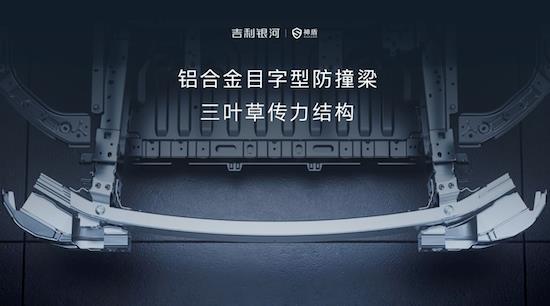
The third layer is the vehicle safety that leads the industry. For side column collisions, the national standard only requires 1 point of the vehicle threshold beam to be tested, and Geely does a full 14-point test. For front center column collisions, the industry standard is only 35km/h, and the Galaxy E8 standard has reached 50 km/h, and it can still make the front impact stop at the front circumference.
The fourth layer is the safe and intelligent management and control of the cloud without blind spots. With the strong computing power of Xingrui Intelligent Computing Center, the Galaxy E8 has experienced more than 12,000 full-scene virtual simulation collisions during the development process. Combined with the battery management system BMS3.0, the battery can be guarded 7 * 24 hours, so as to achieve pre-warning and in-process alarm.
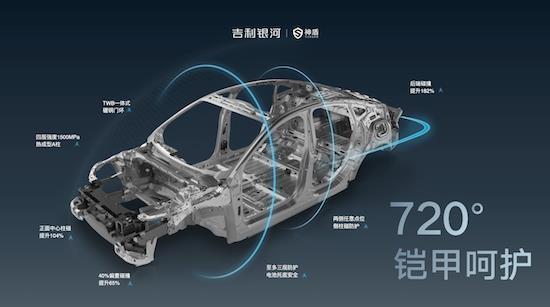
In addition, Geely has further expanded the verification content of the Aegis battery safety system. On the basis that the single battery test is higher than the national standard requirements, the same battery is subjected to the "Iron Man Eight" devil tests such as temperature shock, humid heat cycle, vibration, mechanical shock, water immersion safety, IP6X, IPX8 and IPX9K, and the continuous test is passed at one time.
Secondly, when the vehicle experiences thermal runaway due to external factors, it can achieve a millisecond-level high voltage break, the cooling system is actively turned on, and the battery does not catch fire or explode within 24 hours, which is much higher than the industry standard requirement of 5 minutes.
The Galaxy E8, which is equipped with the Aegis battery safety system, has also passed more than 1,000 high-standard tests of the first vehicle electric safety protection certification system in China with excellent results, and has obtained the "No. 001 vehicle six-dimensional electric safety certification" of China’s new energy vehicles.
At the same time, Geely also announced that it will open the "Geely Global Safety Experiment Center" to all vehicle and parts companies in the industry. The center can independently implement all safety experiments with the most complete verification capabilities and the widest coverage of regulations. In addition, Geely will also share the achievements of safety technology, and work with peers to "build cars with sunshine and conscience" to reshape the safety standards of new energy vehicles, and truly build cars and safety vehicles for users.
Galaxy Unbounded smart cockpit, subverting the mainstream pure electricity without "intelligent interconnection"
In order to bring users an immersive interactive experience and intelligent interconnection, Galaxy E8 has made all-round iterations from hardware, software to intelligent interconnection, creating a new generation of "Galaxy Unbounded Smart Cockpit", subverting users’ imagination of smart cockpits.
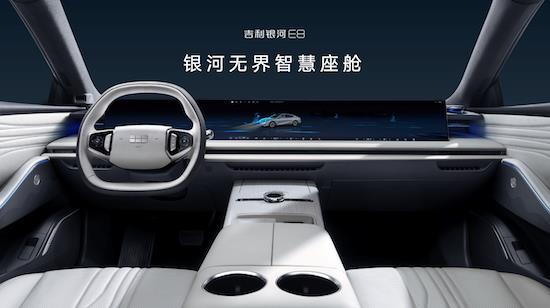
In terms of hardware, Geely partnered with BOE to create the world’s first 45-inch 8K unbounded smart screen for the Galaxy E8, which is also the largest and clearest screen in any car to date. The widest in the world is 1.13 meters, the thinnest in the world is less than 10 mm, the global screen accounts for up to 98%, and the global resolution is up to 8K retina level. At the same time, the reflectivity is only 1.5%, the glare rate is only 4.5%, and with adaptive brightness adjustment, it will not be dazzling at night.

Matching the large screen is the most powerful Qualcomm Snapdragon 8295 chip, which uses a more advanced 5Nm process, which increases the computing power by 8 times compared to the 8155 chip. The Galaxy E8 is also equipped with an interesting soul – the Galaxy NOS Unbounded Edition car machine system, and is equipped with two super brains: Flyme Link mobile phone domain + Meizu mobile phone "super mobile phone brain", and the "super cloud brain" empowered by Geely Star Smart Computing Center.
Galaxy E8’s "Galaxy Unbounded Smart Cockpit" brings users an unbounded interactive experience and a more immersive cockpit experience. Through the Galaxy Crystal knob, you can enter the top ten scene applications such as "iMax Galaxy Cinema" and the full-screen customized 3A game "Wild Race 9" to achieve one-click traversal. All kinds of applications can dynamically expand, flow and displacement on the large screen. When the owner calls, the call interface pops up through the small window, and the original content of the large screen automatically expands to the right. Not only navigation, but listening to music, watching movies, and playing games can be expanded to the "instrument area". In the instrument area, you can also listen to songs and read lyrics without affecting the display of driving information.
At the same time, Geely also brought the ability of the Ai large model to the Galaxy E8, bringing a subversive intelligent experience to users. "Ai Voice" can respond at an extremely fast speed of 0.23s, OurHours can be said without waking up, and the full screen can be visible. A sentence can issue up to 15 commands, supporting simultaneous conversations between multiple people in the whole car. "Ai Rhythm" can automatically create MV when playing songs, and automatically generate a panoramic music rhythm desktop. "Ai Memories" can automatically generate cartoon drawings based on photos uploaded by users. "Ai Time Engine" can automatically adjust the weather, time, music, ambient lights in the cockpit with the external environment of the car… Realize the artistic conception of "the car walks in the scene, and the scene swims in the painting".
Galaxy E8 is a pure electric model empowered by smart technologies such as mobile phones, drones, and satellite Internet. It is also the first model in the world to support Flyme Link, and has launched a customized version of Meizu 21 Geely Galaxy. With just three fingers and one swipe, the mobile phone can be connected to the car without feeling, WeChat, navigation and other applications, as well as functions such as swiping Douyin, browsing Weibo, and playing games, can seamlessly flow with the car. Galaxy E8 is also equipped with an exclusive "escort drone", which can automatically accompany the flight with a throw of the hand, and the screen will be shared on the large screen in real time.
At the same time, the Galaxy E8 is also a car that can "communicate with satellites". The satellite Internet unique to Geely’s global technology ecosystem will provide two-way satellite communication for the Galaxy E8. Even in the absence of mobile phone signals, information can be sent and received through satellites, so that safety will never be lost. In early February this year, the "Geely Future Travel Constellation" will launch 11 satellites in the second orbit.

Only when the intelligent Internet is open enough can it satisfy users’ better experience and allow more mainstream users to enter the era of "Internet of Everything". On the Internet of Everything, Geely will also cooperate with excellent brands and products in various fields. On the Handheld Internet, Geely has opened up the ecology of all Android mobile phones; on the Smart Home Internet, it has opened up smart devices such as JD.com, Xiaodu, and Haier.
Geely Galaxy’s scientific and technological ecological achievements are fully demonstrated, and China’s new energy vehicles have entered the "Galaxy Era"
At this press conference, the latest achievements of Geely Galaxy’s technology ecosystem were also fully showcased to the public.
In terms of smart driving, Geely Galaxy brings a new "solid-state lidar" with ultra-wide viewing angle and ultra-long range, as well as a zoom "gaze" function, which participates in the full-scene function of Galaxy Smart Driving and greatly improves safety. This year, Geely will also bring Galaxy Smart Driving 2.0, a set of high-level smart driving solutions focusing on "urban commuter NOA". Through repeated memory and repeated training of "point-to-point" high-frequency routes, urban NOA is safer and more practical. The smart driving solution will be first available on the Galaxy E8 smart driving version, and various functions will be launched one after another this year.
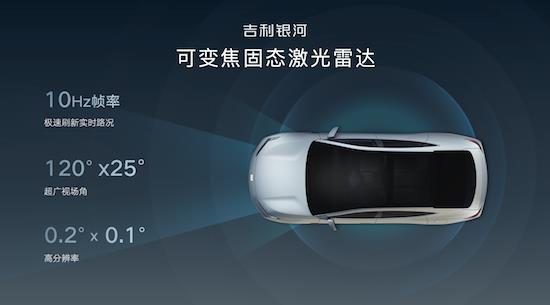
In terms of artificial intelligence, based on the super computing power of Xingrui Smart Computing Center iteration to 10.20 billion billion times/second, Geely has laid out the industry’s first full-stack self-developed "AI big model", which is the only car company big model that has obtained the highest level certification of the National Academy of Information and Communications Technology "4 +". At present, the total training data volume has exceeded 30,000 billion Tokens. It is worth mentioning that Geely Galaxy "Ai Digital Genie" will be launched soon. Every Geely Galaxy owner is expected to have an exclusive intelligent partner, and users can also customize its image according to their needs.
In terms of the energy replenishment ecology that pure electric users are most concerned about, Geely Galaxy will directly share the energy replenishment system of the group’s "thousands of stations and thousands of piles", and connect to more than 880 charging stations of Krypton Energy, covering 137 cities across the country. Among them, there are 2,409 ultra-fast charging piles, and the number of self-built ultra-fast charging piles by car companies is the first! Geely has also planned an exclusive "energy replenishment park" for Galaxy users, which will achieve 300 in 2024. In addition, it has also integrated more than 95% of the country’s charging resources, covering 330 major cities, and the number of available charging piles has reached 600,000.

Geely Galaxy will also continue to bring innovative technologies and products to users, self-developed new generation of 11-in-1 smart electric drive, as well as distributed wheel electric drive, so that mainstream products can also achieve "tank U-turn". The new generation of CTB technology, self-developed new formula batteries and other top new energy technologies will also be carried on Geely Galaxy’s new products. In addition to Galaxy L7, Galaxy L6, and Galaxy E8, Geely Galaxy will launch more blockbuster new products in the next two years, and the "Galaxy Era" of China’s new energy vehicles will officially arrive.
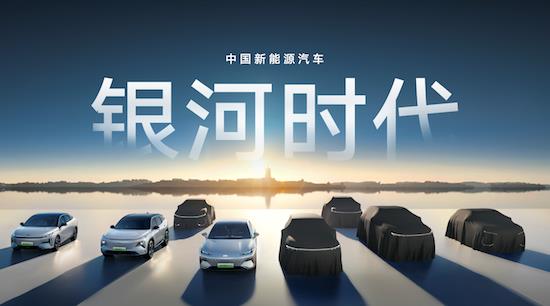
Every product of Galaxy is leading China’s new energy into a "new stage" of value improvement. As Geely Galaxy’s first pure electric sedan, the Galaxy E8 brings mainstream pure electric users a peak value experience that exceeds expectations with 5 years of leading intelligent experience, leading generation appearance, the best flagship performance brought by tens of billions of architectures, million-level security and the most sincere price. Geely Galaxy will also adhere to the mission of "fighting for high-value new energy vehicles" and lead China’s new energy into a high-value era. The first launch in 2024, buy a B-class car must see the Galaxy E8. (Source: Geely Galaxy)

















